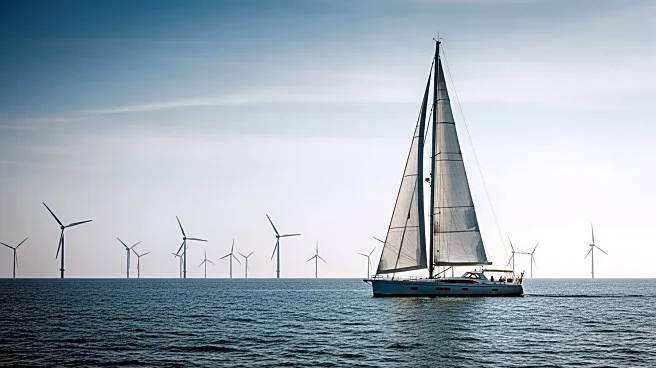What's Happening?
The Neoliner Origin, the world's largest cargo sailboat, has successfully completed its first transatlantic voyage, despite sustaining damage to its aft sail. The vessel, designed to significantly reduce greenhouse gas emissions, traveled from France
to Baltimore, stopping in Saint Pierre and Miquelon. The ship's design incorporates wind propulsion to cut emissions by 80 to 90% compared to traditional diesel-powered cargo ships. The voyage marks a significant milestone in the development of sustainable shipping technologies.
Why It's Important?
The successful voyage of the Neoliner Origin represents a major step forward in the pursuit of environmentally sustainable shipping solutions. As international shipping contributes significantly to global greenhouse gas emissions, innovations like wind propulsion are crucial in reducing the industry's environmental impact. The Neoliner Origin's journey demonstrates the potential for integrating traditional sailing techniques with modern technology to achieve substantial emissions reductions. This development could influence future ship designs and encourage the adoption of green technologies in the maritime industry.
Beyond the Headlines
The Neoliner Origin's voyage highlights the challenges and opportunities associated with transitioning to sustainable shipping practices. The damage to the aft sail underscores the need for further research and development to enhance the reliability and efficiency of wind-powered vessels. Additionally, the ship's ability to maintain precise delivery schedules while reducing emissions could set new standards for the industry. The project also emphasizes the importance of balancing economic viability with environmental responsibility, a key consideration for future innovations in maritime transport.

















